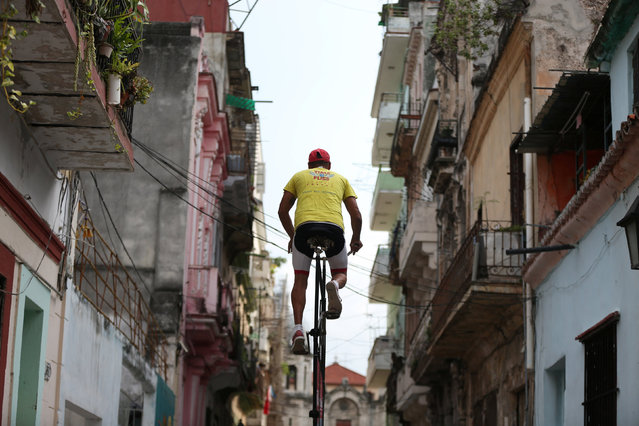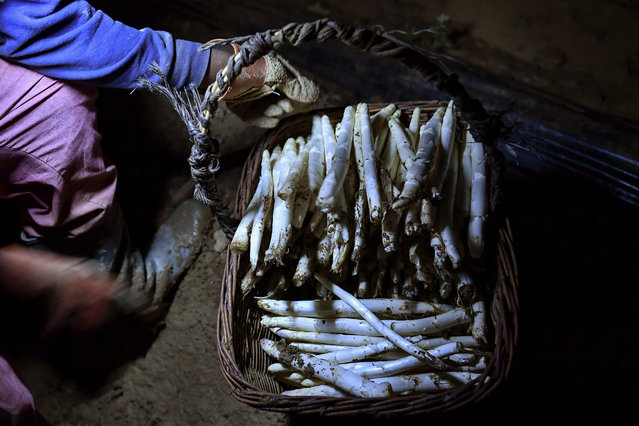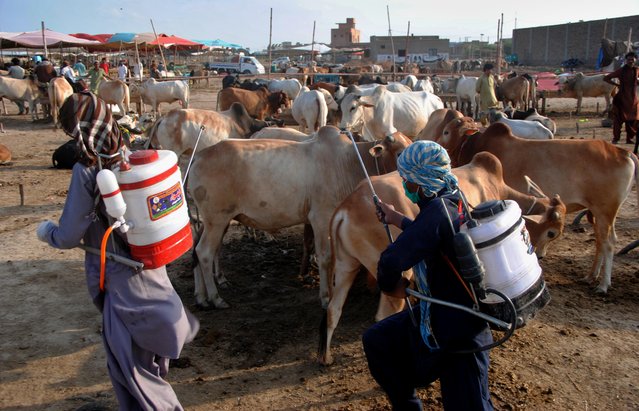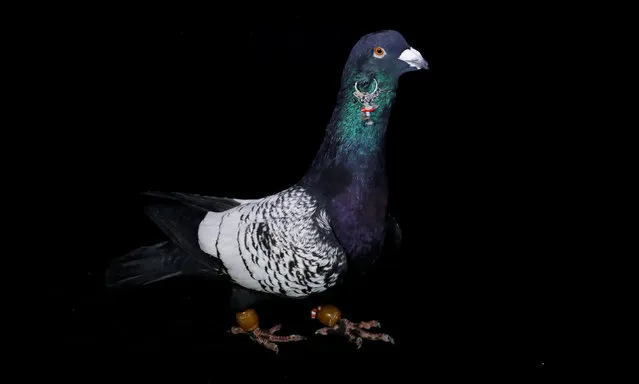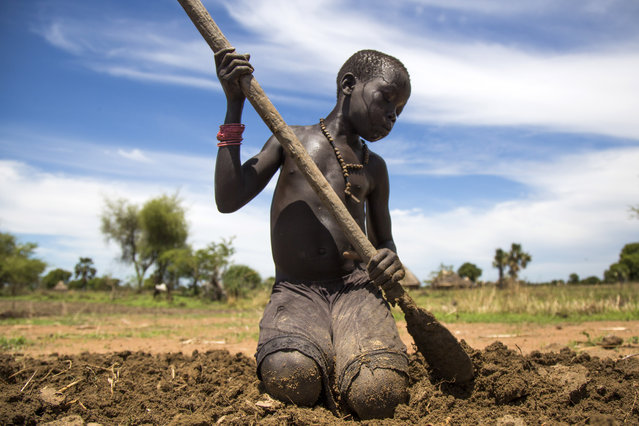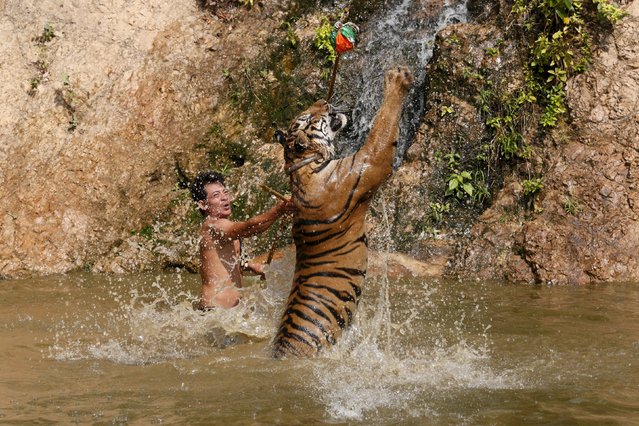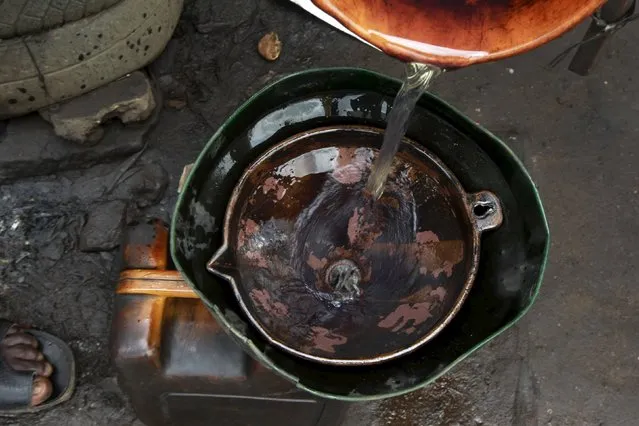
Diesel is poured into a container at theArea 10 shopping centre in Abuja, Nigeria May 25, 2015. Nigerian fuel marketers agreed to resume distribution on Monday after weeks of disruption led to chronic fuel shortages, bringing phone companies, banks and airlines to a standstill days before the inauguration of the country's new president. (Photo by Afolabi Sotunde/Reuters)
26 May 2015 10:59:00,post received
0 comments

